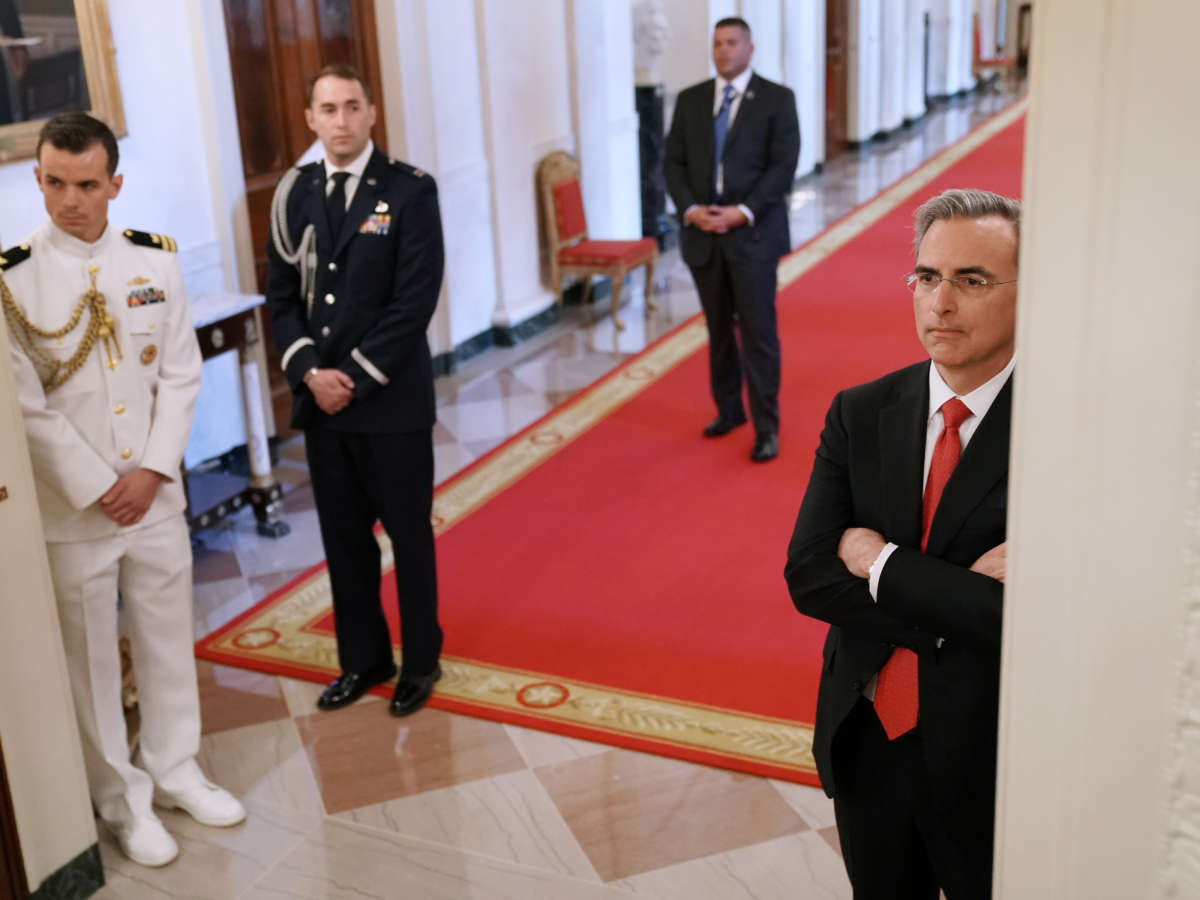The House select committee investigating the January 6, 2021, attack on the U.S. Capitol building has subpoenaed former White House counsel Pat Cipollone to discuss matters relating to his work under former President Donald Trump.
In a joint statement from committee chair Rep. Bennie Thompson (D-Mississippi) and vice chair Rep. Liz Cheney (R-Wyoming), the committee said it has evidence that Cipollone “repeatedly raised legal and other concerns about President Trump’s activities on January 6th” and on the days that preceded the attack.
The statement recognized that Cipollone had previously agreed to informal meetings with the committee, but said that the committee “needs to hear from him on the record, as other former White House counsels have done in other congressional investigations.”
“Any concerns Mr. Cipollone has about the institutional prerogatives of the office he previously held are clearly outweighed by the need for his testimony,” Thompson and Cheney said in their joint statement.
The committee plans to discuss multiple topics with Cipollone, including the scheme by Trump and his campaign to appoint fake electors in order to disrupt the Electoral College certification process, and the attempt to appoint Jeffrey Clark, a Department of Justice official who was loyal to Trump, as head of the entire department in order to initiate investigations based on false claims of election fraud.
Cipollone had threatened to resign from his office in protest if Trump appointed Clark to replace then-acting Attorney General Jeffrey Rosen, a Senate report detailed last year.
Cipollone’s previous agreement to sit with the January 6 committee was made under limited circumstances. He has so far resisted calls to testify in more depth, and a lawyer for Cipollone has previously said that a subpoena request would be required in order for him to agree to do so.
Writing on his Truth Social account, Trump said that Cipollone speaking candidly to the January 6 panel would “set a terrible precedent for future presidents.”
However, the precedent for former White House counsels testifying before Congress was set nearly five decades ago, when John Dean, who was President Richard Nixon’s White House counsel at the time, spoke to a congressional committee during the Watergate hearings. Many historians agree that it was Dean’s testimony that eventually led Nixon to decide to resign from office.


